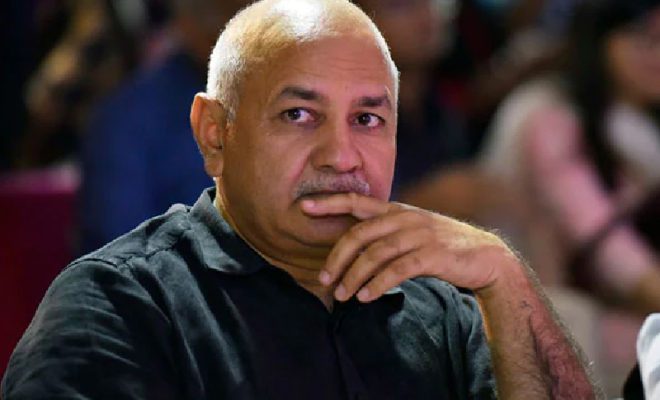Manish Sisodia’s plea for bail in Delhi liquor case rejected

In a recent judicial development, the Supreme Court of India, led by Chief Justice DY Chandrachud and comprising justices Sanjiv Khanna, BR Gavai, and SVN Bhatti, delivered a significant ruling regarding the ongoing legal proceedings involving Manish Sisodia, a prominent figure in Indian politics. This ruling pertains to Sisodia’s curative petition, which sought to challenge the top court’s earlier decision rejecting his bail plea concerning alleged irregularities in the implementation of liquor policies.
Dismissal of Curative Petition
The bench, presided over by Chief Justice Chandrachud, unequivocally dismissed Manish Sisodia’s curative petition, signaling a firm stance on the matter. Despite fervent efforts to seek a review of the previous decision denying bail, the court remained resolute in its judgment. Justices Khanna, Gavai, and Bhatti concurred with the Chief Justice in rejecting Sisodia’s plea for reconsideration, reinforcing the court’s position on the case.
Background on the Case
The case against Manish Sisodia stems from allegations of involvement in irregularities related to the liquor policy. Sisodia, who holds a prominent position in the political landscape, found himself entangled in legal proceedings following accusations of impropriety in the implementation of liquor regulations. In light of these allegations, Sisodia sought bail to navigate the legal challenges surrounding the case. However, the Supreme Court’s initial refusal to grant him bail prolonged the legal battle, prompting Sisodia to pursue alternative avenues, such as the curative petition.
Implications of the Ruling
With the dismissal of the curative petition, Manish Sisodia now faces continued legal scrutiny without the immediate prospect of bail. This ruling carries significant implications not only for Sisodia but also for the broader legal landscape. It underscores the judiciary’s unwavering commitment to upholding the rule of law and ensuring accountability, particularly in cases involving high-profile individuals. Furthermore, the ruling sets a precedent for similar cases, reaffirming the judiciary’s role as a bastion of justice and impartiality.
Also Read | Amit Shah criticizes opposition, stating Bengal, Tamil Nadu, Kerala lack authority to block CAA
Analysis of Judicial Decision
The Supreme Court’s decision to reject Manish Sisodia’s curative petition reflects a meticulous examination of the case’s legal merits and implications. The bench, comprising seasoned jurists, deliberated on the matter with due diligence, weighing the arguments presented by both parties before arriving at a final verdict. By upholding the earlier decision to deny bail, the court has reaffirmed its commitment to safeguarding the integrity of the legal process and ensuring that justice is served without prejudice or favoritism.
The Supreme Court’s rejection of Manish Sisodia’s curative petition in the case pertaining to liquor policy irregularities marks a pivotal moment in the ongoing legal saga. The court’s decisive ruling underscores its unwavering dedication to upholding the principles of justice and accountability, regardless of the stature of the individuals involved. As Manish Sisodia navigates the complexities of the legal process, this ruling serves as a reminder of the judiciary’s pivotal role in ensuring the rule of law prevails in society.



